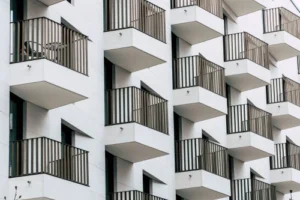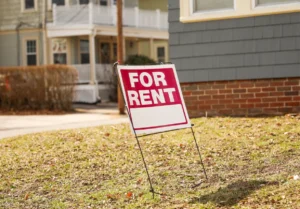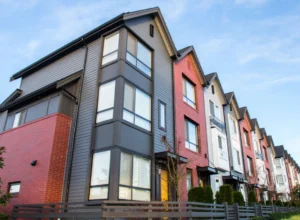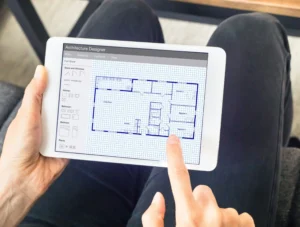Understanding the rules and regulations surrounding a landlord’s right to entry is crucial

Can a Landlord Let Themselves In? Unlocking the Legalities
A landlord cannot let themselves into a tenant’s property without prior notice, except in emergencies. Generally, landlords must provide at least 24 hours’ notice before entering, respecting tenants’ privacy and adhering to specific state laws regarding entry reasons and times.
This raises the question of whether a landlord can let themselves in without the tenant’s permission.
The answer is straightforward: yes, landlords have the legal authority to enter the rental property they own.
However, there are legal restrictions and guidelines that a landlord must follow to ensure they respect the tenant’s rights and privacy.
Understanding the rules and regulations surrounding a landlord’s right to entry is crucial in maintaining a harmonious landlord-tenant relationship and avoiding any legal disputes.
Landlord-Tenant Relationships
Key Elements In A Landlord-Tenant Relationship
When entering into a rental agreement, both landlords and tenants should have a clear understanding of the key elements that shape their relationship.
These elements set the foundation for a successful tenancy and protect both parties’ rights and obligations. Some key elements to consider include:
The lease agreement
This legally binding document outlines the terms and conditions of the rental agreement, including rental payment, lease duration, and any specific rules or restrictions.
Security deposit
Tenants typically provide a security deposit upfront, which serves as a form of financial security for the landlord in case of unpaid rent or damages.
Rental payment
Tenants are responsible for paying rent on time and in full, while landlords are responsible for providing a habitable living space in return.
Maintenance and repairs
Landlords are responsible for maintaining the rental property in good condition, ensuring that necessary repairs are made promptly.
Privacy
Both landlords and tenants have the right to privacy. While landlords may need access to the rental property for various reasons, tenants have the right to enjoy their space without unnecessary intrusion.
Need Legal Help?
Chat with a real estate lawyer near you. It’s only $5 for a 1-week trial. Ask unlimited questions.
Legal Responsibilities Of Landlords And Tenants
Understanding the legal responsibilities of landlords and tenants is crucial to establishing a fair and mutually respectful relationship.
Here are some key legal responsibilities that both parties must adhere to:
| Landlord Responsibilities | Tenant Responsibilities |
|---|---|
|
Providing a safe and habitable living environment |
Paying rent on time |
|
Complying with housing and building codes |
Reporting any maintenance issues or damages |
|
Addressing repairs promptly |
Using the property responsibly and avoiding damage |
|
Respecting tenant privacy |
Following the terms of the lease agreement |
The Landlord’s Right To Enter The Rental Property
While tenants have a right to privacy, landlords also have certain rights pertaining to the rental property.
However, it is important to note that these rights must be exercised responsibly and with proper notice to the tenant.
The specific laws regarding the landlord’s right to enter the rental property may vary depending on the jurisdiction, but generally, landlords are allowed to enter the property under the following circumstances:
- Emergency situations that require immediate attention, such as a burst pipe or fire hazard.
- To make necessary repairs or conduct inspections, provided proper notice is given to the tenant.
- If the tenant grants permission for the landlord to enter for a specific purpose.
Examining Landlord Entry Laws
One fundamental aspect of being a landlord is understanding the legal rights and responsibilities when it comes to entering a tenant’s rented property.
This ensures harmony between both parties and protects the interests of both the landlord and the tenant.
Essential laws governing landlord entry rights
Landlord entry rights are regulated by specific laws to ensure that tenants’ privacy and enjoyment of the property are protected.
These laws vary between jurisdictions, so it is important to become familiar with the laws specific to your location. However, some common principles can be found in many places.
| Key Points: |
|
1. Landlords must have a valid reason for entering the rented property, such as necessary repairs, inspections, or emergencies. |
|
2. Entry must be during reasonable hours, typically defined as daylight hours unless there is an emergency or the tenant agrees to a different time. |
|
3. Landlords are generally required to provide notice to tenants before entering the property, except in certain circumstances. |
The concept of ‘reasonable notice
‘Reasonable notice’ is an important concept in landlord entry laws.
It refers to the amount of advance notice a landlord must provide to a tenant before entering the rented property.
The exact length of reasonable notice may vary depending on local laws, but it is typically a reasonable amount of time to allow the tenant to prepare and accommodate the entry.
While each jurisdiction has its own rules, a general rule of thumb is to provide at least 24-48 hours’ notice to tenants.
This allows them sufficient time to make any necessary arrangements and ensures their privacy is respected.
Exploring Exceptions To The Notice Requirement
While notice is typically required for landlord entry, there are exceptions in certain situations.
These exceptions often pertain to emergencies or situations that require immediate action to prevent further damage or harm. Some common exceptions include:
-
Landlords can enter without notice in case of emergencies, such as a water leak, fire, or gas leak.
-
If there is an imminent danger to the tenant or the property, landlords may enter without notice to address the situation.
-
If a tenant has abandoned the rental property, the landlord may enter to inspect or secure it without providing notice.
Tenant Rights: Privacy And Security
Tenant rights are of utmost importance when it comes to maintaining privacy and security.
As a tenant, it is vital to understand your rights and assert them when necessary.
One significant aspect of tenant rights is the privacy and security that every tenant is entitled to.
The Importance Of Tenant Privacy Rights
Tenant privacy rights are crucial for maintaining a peaceful and secure living environment.
As a tenant, you have the right to privacy within your rental property.
This means that your landlord cannot invade your personal space without proper justification and your consent.
The right to privacy protects you from unauthorized entry, surveillance, and other intrusive actions by your landlord.
Upholding tenant privacy rights is vital to create a sense of security and ensure a healthy landlord-tenant relationship.
Analyzing Security Concerns For Tenants
Tenants should be aware of potential security concerns that may arise during their tenancy.
While landlords have the responsibility to maintain the safety of the rental property, tenants should also take precautions to protect themselves and their belongings. Some security concerns for tenants may include:
-
The quality of door and window locks.
-
The functionality of security systems, if applicable.
-
The accessibility of common areas and proper lighting.
-
The presence of security cameras.
-
The behavior and background of other tenants.
Highlighting The Role Of Consent In Landlord Entry
The role of consent is crucial when it comes to landlord entry.
As a tenant, your landlord cannot enter your rental property without your consent, except in specific circumstances outlined in your lease agreement or state laws.
Typically, landlords are required to provide prior notice before entering your premises and should have a valid reason for doing so, such as repairs or inspections.
Your right to privacy means that you have control over who enters your home, and landlords must respect this right.
Landlord’s Right To Enter: Circumstances And Limitations
In the landlord-tenant relationship, it is important to understand the circumstances and limitations surrounding a landlord’s right to enter a rental property.
Landlords have certain rights to enter the property, but these rights are not unlimited.
Exploring Valid Reasons For Landlord Entry
Landlords may have several valid reasons to enter a rental property.
It’s crucial to note that these reasons should always be lawful and reasonable.
Here are some common valid reasons for landlord entry:
-
Performing necessary repairs or maintenance on the property.
-
Conducting inspections to ensure the property is in good condition.
-
Showing the property to prospective tenants or buyers.
-
Addressing an emergency situation, such as a water leak or fire hazard.
-
Checking compliance with lease terms, such as pet policies or smoking restrictions.
Legally Permissible Timeframes For Entry
While landlords have the right to enter a rental property, they must adhere to legally permissible timeframes.
These timeframes can vary by jurisdiction, so it’s vital for landlords to familiarize themselves with the specific laws in their area.
Generally, landlords must provide notice to the tenant before entering the property and should aim to schedule entry during reasonable hours. Here is an overview of typical legally permissible timeframes:
| Type of Entry | Notice Requirement |
|
Emergency entry |
No notice required |
|
Non-emergency entry |
Usually 24-48 hours notice required |
Outlining Limitations On Landlord Self-entry
While landlords have the right to enter a rental property under certain circumstances, there are limitations to prevent abuse of this privilege.
It’s essential for landlords to be aware of these limitations to maintain a respectful and lawful relationship with their tenants.
Here are some key limitations on landlord self-entry:
-
Landlords cannot enter the property without proper notice, except in emergencies.
-
Landlords cannot enter the property for reasons that are not specified in the lease or allowed by law.
-
Landlords must respect a tenant’s right to privacy and quiet enjoyment of the property.
-
Landlords may face legal consequences if they violate the limitations on self-entry, such as trespassing charges or potential damages awarded to the tenant.
Resolving Landlord-Tenant Disputes
Dealing with conflicts and disagreements between landlords and tenants can be a challenging and delicate situation.
Whether it’s issues related to property maintenance, rent payments, or landlord access, addressing these disputes in a fair and efficient manner is crucial to maintaining a peaceful and productive landlord-tenant relationship.
Discussing Common Conflicts And Disagreements
When it comes to landlord-tenant relationships, conflicts and disagreements can arise from various factors.
One of the most common issues involves repairs and maintenance.
Tenants may feel frustrated if their requests for repairs are ignored or delayed, while landlords may expect proper care and timely reporting of maintenance issues in return.
Moreover, debates around rent adjustments, lease violations, property access, and security deposit disputes can also lead to conflicts.
By openly discussing these common conflicts and disagreements, both landlords and tenants can develop a better understanding of each other’s perspectives.
Clear communication and negotiation can often pave the way for finding a mutually acceptable resolution.
Creating an environment where both parties can express their concerns and actively listen to each other goes a long way in preventing disputes from escalating further.
Mediation And Dispute Resolution Options
When conflicts arise, it’s important to explore mediation and dispute resolution options before resorting to legal action.
Mediation involves the appointment of a neutral third party who helps facilitate communication between the landlord and tenant.
This process encourages open dialogue, promotes problem-solving, and can lead to an agreement that satisfies both parties without the need for litigation.
In addition to mediation, alternative dispute resolution methods such as arbitration and negotiation can also be considered.
Arbitration involves presenting the dispute to a neutral arbitrator who reviews the evidence and makes a final decision that both parties must abide by.
Negotiation, on the other hand, involves the parties engaging in direct discussions to find a compromise and reach a settlement.
The Legal Repercussions For Unlawful Entry
Landlords must be aware of their legal obligations when it comes to entering a rental property.
While landlords generally have the right to enter the property under certain circumstances, such as emergencies, or to conduct necessary repairs, they must abide by state-specific laws regarding notice and entry procedures.
Unlawful entry can lead to serious legal repercussions for the landlord, including potential monetary penalties and damaged relationships with tenants.
Final Words
While landlords generally have the right to access rental properties for specific reasons, it is important to establish clear guidelines and communication with tenants.
Respecting their privacy and providing notice is crucial in maintaining a positive landlord-tenant relationship.
By understanding legal requirements and prioritizing open dialogue, landlords can navigate the complex issue of entering the rental property with professionalism and tenant satisfaction in mind.
Source: Rental Awareness
Disclaimer: All content provided here-in is subject to AAOA’s Terms of Use. Nothing contained on this website constitutes tax, legal, insurance or investment advice, nor does it constitute a solicitation or an offer to buy or sell any security or other financial instrument. AAOA recommends you consult with a financial advisor, tax specialist, attorney or other specialist who is able to properly advise you.













 Accessibility
Accessibility